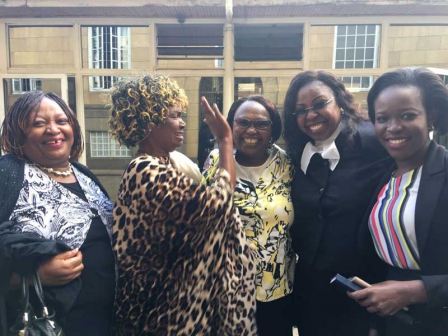×
The Standard e-Paper
Home To Bold Columnists

The Koinange family celebrating after the court ruling. (Photo: Courtesy)
The Court of Appeal has Friday declared Margaret Njeri Mbiyu as the recognised widow of the late Peter Mbiyu Koinange and a beneficiary of his estate.